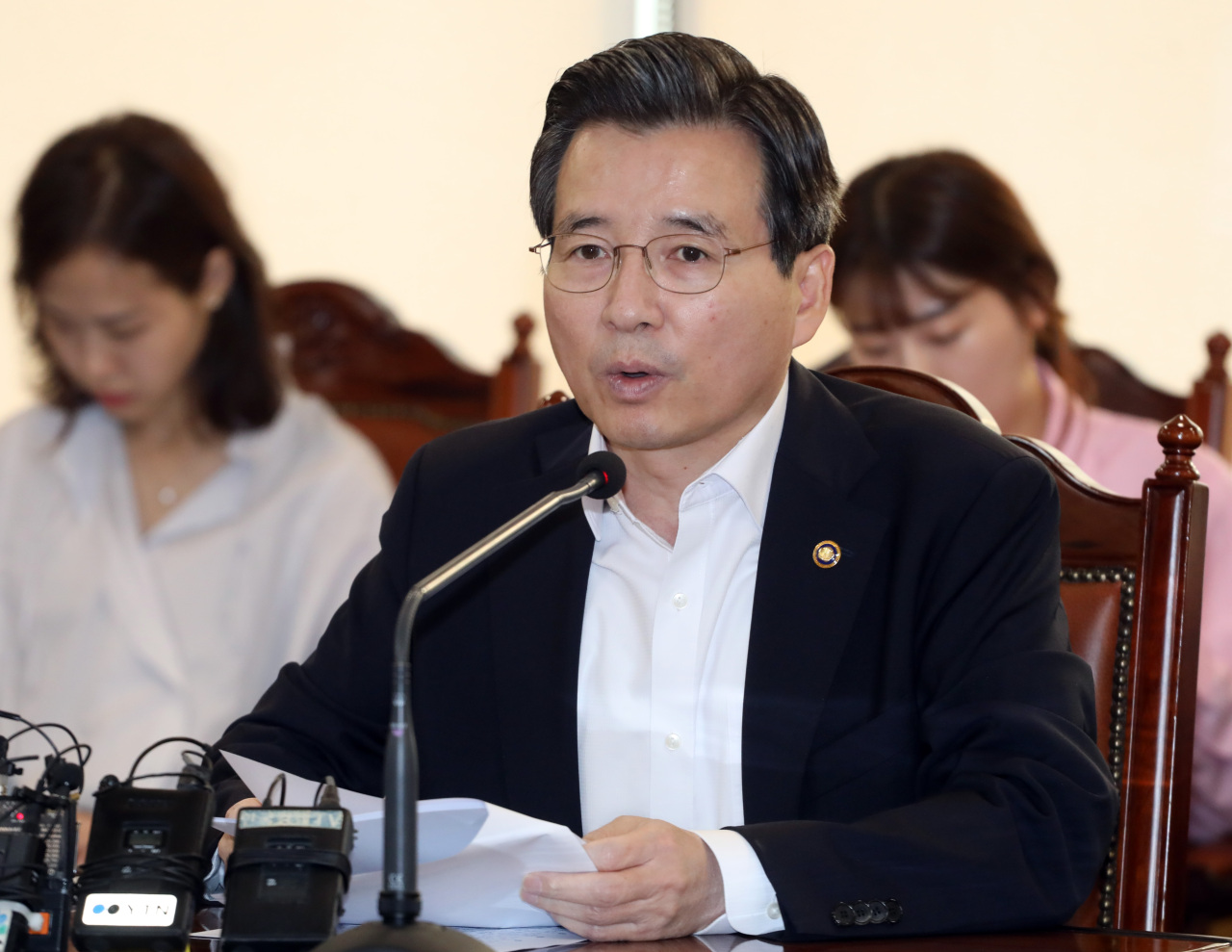The Ministry of Economy and Finance has disputed a Bloomberg column that accused the Moon Jae-in administration’s inclusive growth policies as “socialist,” officials said Wednesday.
Bloomberg on Monday posted a letter to the editor, written by Seoul’s First Vice Minister Kim Yong-beom in response to an earlier column titled “What’s worse than corrupt billionaires? Socialism.”
The original column by Shuli Ren, an opinion columnist covering Asian markets, appeared Sept. 15 amid burgeoning talks on Korea’s gloomy growth prospects for this year.
 |
First Vice Minister of Finance Kim Yong-beom (Yonhap) |
“This column appears to be an attempt to define the current South Korean administration as a socialist government, based on a book by one university professor,” Kim wrote.
“This is an unbalanced argument, a consequence of insufficient understanding of the background and the policies.”
In her column, Ren used the term “Gangnam left,” coined by Chonbuk National University professor Kang Jun-man, to criticize wealthy elites in Korea who advocate “socialist” policies. The concept has rekindled disputes here, amid divided public opinion over corruption allegations against newly appointed Justice Minister Cho Kuk, who was seen as an icon of the progressive elite group.
The columnist also blamed President Moon for standing at odds with the business community in times of slowing growth momentum and social division.
The Finance Ministry official, however, said Ren’s assessment reflected an inaccurate understanding of Korea’s economy.
While the success of Asia’s fourth-largest economy is well known, its increasing downsides and instability -- the widening income gap and two-tier labor market -- tend to be overlooked, according to Kim.
Tackling these challenges, the Moon administration made it a policy priority to create a virtuous cycle of growth and equitable distribution through innovative policy actions, such as the disputed minimum wage hikes, he explained.
The vice minister also criticized the columnist’s negative view of Korea’s planned presale price cap for homes. Seoul’s policymakers are slated to impose a price ceiling on residential properties, starting later this month, in an effort to curb the bubble-prone real estate market here.
“I couldn’t help but start to question her intentions and fairness because the policy has not yet been implemented,” Kim wrote.
“Excessive household debt is one of the more serious risks in the Korean economy. ... Had Ren been aware of Korea’s real-estate market situation, her argument would have been different.”
As for the assertion that the “failures” of the Moon government are to blame for the dampened stock market, Kim pointed to increasing global uncertainties, especially the ongoing US-China trade dispute.
“Korea’s private investment remained high before it was hit by the US-China trade war, increasing 8.5 percent on-year in the second half of 2017 (but) started to fall in the second quarter of 2018 when the trade war began to affect the global economy,” Kim said.
By Bae Hyun-jung (
tellme@heraldcorp.com)








![[Today’s K-pop] Blackpink’s Jennie, Lisa invited to Coachella as solo acts](http://res.heraldm.com/phpwas/restmb_idxmake.php?idx=644&simg=/content/image/2024/11/21/20241121050099_0.jpg)